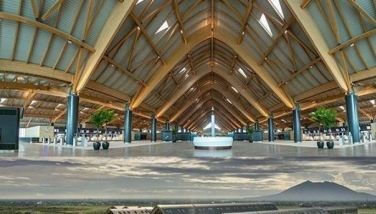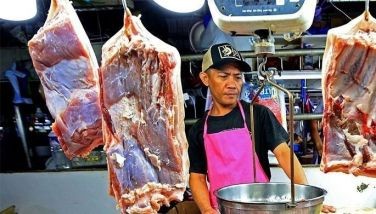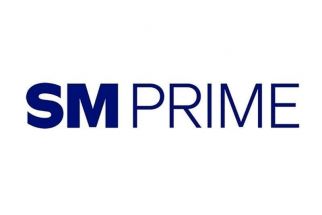3 more areas pushed as ecozones

May 10, 2004 | 12:00am
Trade and Industry Secretary Cesar V. Purisima is recommending to Malacañang the designation of three more areas as special economic zones.
These areas are the Food Terminal Inc. complex in Taguig, Rapu-Rapu in Albay, and Fort Ilocandia in Laoag.
"I am recommending the designation of the three areas as special ecozones to encourage more export activities in the area and spur economic activities in surrounding areas," Purisima said.
The 24-hectare FTI complex in Taguig, Purisima said, would be converted into a special ecozone to be known as the FTI Special Economic Zone or FTI-SEZ.
He said the conversion of FTI into a special ecozone is upon the request of present locators who are engaged in the semiconductor and electronic industry and are thus primarily export-oriented industries.
The existing semiconductor firms in FTI include PSI Technologies Inc., VISHAY (Phils.) Inc., Temic Automotive (Phils.) Inc., Team Pacific Corp. and PSPIC Corp. Other locators in the FTI are Skyfreight Corporation which is a logistics/warehouse operator, and two garments firm —— Triumph Philippines Inc. and Penn Philippines.
The proposed Rapu-Rapu ecozone covers 41.4 hectares. The area is devoted to ore processing.
The estimated land development cost is $23 million and the expected annual output of the project is approximately 9,000 tons of copper; 12,000 tons of zinc; 45,000 ounces of gold and 500,000 ounces of silver.
The Rapu-Rapu mineral production is estimated at $350 million over the initial six-year life of the project.
Lafayette (Philippines) Inc. (LPI) is seeking the designation of the area as a special ecozone with Rapu-Rapu Minerals Inc. (RRMI) as the developer/operator of the proposed zone as well as the company to undertake the mining operations. LPI is a subsidiary of Lafayette Mining Limited, an Australian firm.
RRMI will supply the ore for processing to produce copper and zinc concentrates to be smelted by PASAR and other overseas smelters.
LPI owns 40 percent of RRMI, while the remaining 60 percent is owned by a consortium of Filipino investors.
Fort Ilocandia will be turned into a tourism ecozone to be known as the Fort Ilocandia Tourism Economic Zone.
The area will be developed by the Fort Ilocandia Property Holdings and Development Corporation (FIPHDC) at a cost of P100 million. FIPHDC is 60% Filipino-owned and 40% Chinese-owned.
Business establishments operating in the ecozones are entitled to fiscal incentives and enjoy tax benefits and holidays.
These areas are the Food Terminal Inc. complex in Taguig, Rapu-Rapu in Albay, and Fort Ilocandia in Laoag.
"I am recommending the designation of the three areas as special ecozones to encourage more export activities in the area and spur economic activities in surrounding areas," Purisima said.
The 24-hectare FTI complex in Taguig, Purisima said, would be converted into a special ecozone to be known as the FTI Special Economic Zone or FTI-SEZ.
He said the conversion of FTI into a special ecozone is upon the request of present locators who are engaged in the semiconductor and electronic industry and are thus primarily export-oriented industries.
The existing semiconductor firms in FTI include PSI Technologies Inc., VISHAY (Phils.) Inc., Temic Automotive (Phils.) Inc., Team Pacific Corp. and PSPIC Corp. Other locators in the FTI are Skyfreight Corporation which is a logistics/warehouse operator, and two garments firm —— Triumph Philippines Inc. and Penn Philippines.
The proposed Rapu-Rapu ecozone covers 41.4 hectares. The area is devoted to ore processing.
The estimated land development cost is $23 million and the expected annual output of the project is approximately 9,000 tons of copper; 12,000 tons of zinc; 45,000 ounces of gold and 500,000 ounces of silver.
The Rapu-Rapu mineral production is estimated at $350 million over the initial six-year life of the project.
Lafayette (Philippines) Inc. (LPI) is seeking the designation of the area as a special ecozone with Rapu-Rapu Minerals Inc. (RRMI) as the developer/operator of the proposed zone as well as the company to undertake the mining operations. LPI is a subsidiary of Lafayette Mining Limited, an Australian firm.
RRMI will supply the ore for processing to produce copper and zinc concentrates to be smelted by PASAR and other overseas smelters.
LPI owns 40 percent of RRMI, while the remaining 60 percent is owned by a consortium of Filipino investors.
Fort Ilocandia will be turned into a tourism ecozone to be known as the Fort Ilocandia Tourism Economic Zone.
The area will be developed by the Fort Ilocandia Property Holdings and Development Corporation (FIPHDC) at a cost of P100 million. FIPHDC is 60% Filipino-owned and 40% Chinese-owned.
Business establishments operating in the ecozones are entitled to fiscal incentives and enjoy tax benefits and holidays.
BrandSpace Articles
<
>
- Latest
- Trending
Trending
Latest
Trending
Latest
Recommended
































